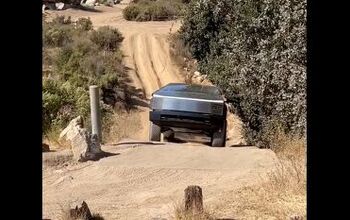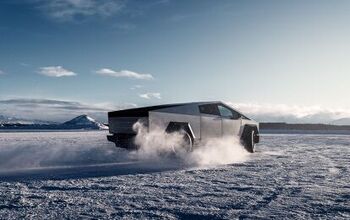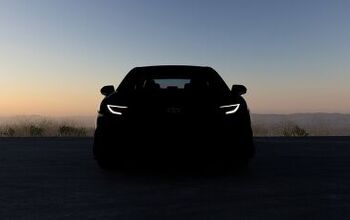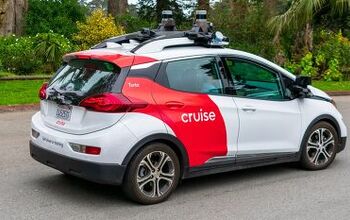Market Share: Tesla Model 3 Sees Lower Chinese Pricing

Next week, Tesla Motors will begin deliveries of its Shanghai-made Model 3 to Chinese customers — who stand to get a bit of a deal on them. Unlike Western markets, China is already loaded with local companies manufacturing electric vehicles and Tesla doesn’t want to lose out on market share simply because it priced its vehicles too high.
Originally, the manufacturer intended on selling introductory Model 3s at 355,800 yuan ($51,000 USD) a pop. That was soon lowered to 323,800 yuan ($46,500) to pull shoppers from automakers like BYD, NIO and Xiaopeng Motors. Broad profit margins are nice, but the Chinese EV market is too crowded for the brand not to focus on market share.
According to Automotive News, government subsidies will further lower the cost of the Model 3 (Standard Range Plus with Autopilot) to the American equivalent of $42,900 — keeping the car’s overall fee in the center of China’s premium, new-energy vehicle market. Tesla has handled the region differently by offering racing events and parties aimed at creating a buzz around the brand.
From Automotive News:
California-based Tesla, which handed over the first of its Chinese-made cars to 15 employees on Dec. 30, will start delivering local models to the public on Jan. 7, it said on its official WeChat account. That’s just one year after breaking ground at the Shanghai plant, Tesla’s first factory outside the U.S.
“This price cut shows Tesla’s confidence in cost control and determination in rapidly expanding its market share,” said Yale Zhang, managing director of Autoforesight, a Shanghai-based consultancy.
Elon Musk’s company is also lowering the cost of optional extras, from body color to high-performance wheels, according to a statement. Home-charging services aren’t included, and cost an extra 8,000 yuan. Tesla is already assembling more than 1,000 cars a week at its China facility and plans to double that rate over the year, according to Song Gang, the manufacturing director of the plant.
Tesla is also reportedly interested in localization, believing it will eventually help it cut prices by 20 percent (if not more) by the end of 2020. Since the Ministry of Industry and Information Technology has confirmed that Tesla’s Chinese-manufactured products are not subject to the nation’s 10 percent purchasing tax, it should be able to mix it up with the region’s domestic nameplates rather well in the coming years. Ultimately, Tesla hopes to manufacture 3,000 vehicles per month in Shanghai. Presumably, CEO Elon Musk aims to hit that target after the upcoming Model Y begins assembly, but the official timeline for the production ramp-up is anybody’s guess.
[Image: B.Zhou/Shutterstock]

A staunch consumer advocate tracking industry trends and regulation. Before joining TTAC, Matt spent a decade working for marketing and research firms based in NYC. Clients included several of the world’s largest automakers, global tire brands, and aftermarket part suppliers. Dissatisfied with the corporate world and resentful of having to wear suits everyday, he pivoted to writing about cars. Since then, that man has become an ardent supporter of the right-to-repair movement, been interviewed on the auto industry by national radio broadcasts, driven more rental cars than anyone ever should, participated in amateur rallying events, and received the requisite minimum training as sanctioned by the SCCA. Handy with a wrench, Matt grew up surrounded by Detroit auto workers and managed to get a pizza delivery job before he was legally eligible. He later found himself driving box trucks through Manhattan, guaranteeing future sympathy for actual truckers. He continues to conduct research pertaining to the automotive sector as an independent contractor and has since moved back to his native Michigan, closer to where the cars are born. A contrarian, Matt claims to prefer understeer — stating that front and all-wheel drive vehicles cater best to his driving style.
More by Matt Posky
Latest Car Reviews
Read moreLatest Product Reviews
Read moreRecent Comments
- Calrson Fan Jeff - Agree with what you said. I think currently an EV pick-up could work in a commercial/fleet application. As someone on this site stated, w/current tech. battery vehicles just do not scale well. EBFlex - No one wanted to hate the Cyber Truck more than me but I can't ignore all the new technology and innovative thinking that went into it. There is a lot I like about it. GM, Ford & Ram should incorporate some it's design cues into their ICE trucks.
- Michael S6 Very confusing if the move is permanent or temporary.
- Jrhurren Worked in Detroit 18 years, live 20 minutes away. Ren Cen is a gem, but a very terrible design inside. I’m surprised GM stuck it out as long as they did there.
- Carson D I thought that this was going to be a comparison of BFGoodrich's different truck tires.
- Tassos Jong-iL North Korea is saving pokemon cards and amibos to buy GM in 10 years, we hope.


































Comments
Join the conversation
I am very curious to see how Tesla will do in China. Tesla's natural market is in relatively prosperous, polluted, congested cities with high population density (mostly: China and Europe). Tesla will need government incentives of some sort (charging stations, gas tax etc.). It is very predictable that at one point, some European city will successfully turn its downtown into a quiet electric vehicles only oasis. But for the US, I do not really see a natural market for relatively expensive Tesla vehicles. We live in interesting times!
So many interesting opinions in here. Owner of a 2019 2.5i Legacy Limited here. It isn't my daily driver and I wouldn't have bought it for myself. Here are my 2 cents: Though I haven't had any amazing opportunities to test it, previous experience in an Outback plus many reviews etc suggests to me that the AWD in the Subaru's IS in fact superior to most other AWD cars and crossovers. If for no other reason than because it is powering all 4 wheels all the time rather than waiting for slip. The CVT is soul sucking and noisy but I haven't seen much evidence that they are reliability liability. The 2.5 boxer engine is VERY loud and agricultural, especially when cold. And the in dash nav is a dreadful Tom Tom implementation. As for the infotainment, this car more than others makes me so thankful for CarPlay. What they get right (in the Limited trim) is the quality of the leather seats and trim, the very powerful and balanced Harman Kardon audio, well outfitted back seat, power passenger sheet and great LED steerable headlights. The headlights are by far the best I've ever experienced. The Eyesight stuff including auto high beams work well but it has the Japanese affinity for lots of beeps and flashing warnings etc. Still, the actual throttle and brake control of the adaptive cruise is very smooth and predictable, great for light to moderate traffic. What is the most disappointing it almost every aspect of the car in motion. Slow, noisy under acceleration, bouncy floppy suspension and accurate but somehow ponderous steering. I guess the brakes are fine. I'm pretty sure there isn't a single Ford smaller than an F-250 that handles worse. In terms of driving it reminds me of the first generation Chevrolet Malibu or a Lumina or something from that dreadful era.